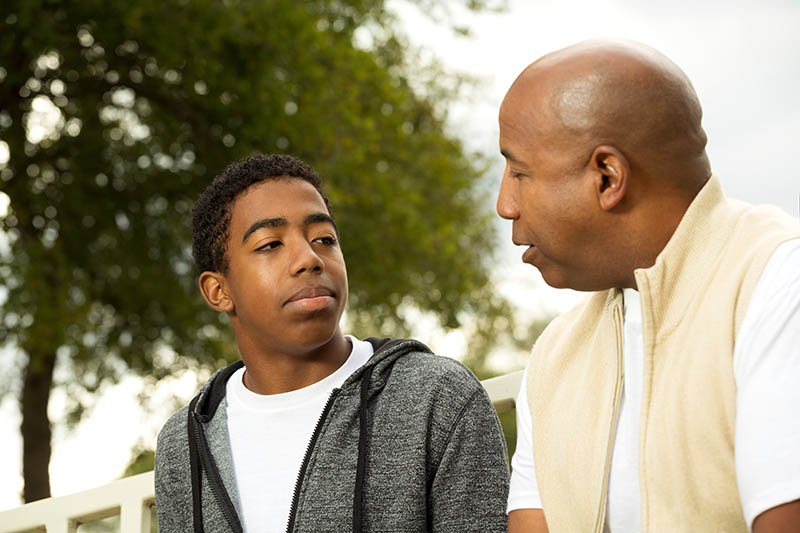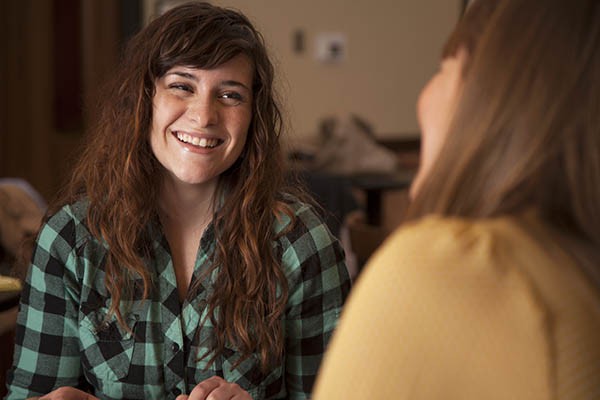Worries, doubts and anxiety do not suddenly come pouring in on your eighteenth birthday. They can be present for years before entering adulthood but resources and help for managing these feelings may not be. Vaya Health hopes to change that through the Healthy Transitions Grant from the Substance Abuse and Mental Health Services Administration (SAMHSA). A partnership with Family Preservation Services and Youth Villages improves access to treatment and support services for young adults ages 16-25 in Buncombe and Henderson counties.
“It’s a really hard time for everybody right now, but it seems to be a particularly hard time for youth and young adults,” said Derrick Hall, adult enhanced services program manager with Family Preservation Services. “If there was ever a time that youth could use support, that time is now.”

Healthy Transitions supports outreach, assessment and care coordination to improve the behavioral and emotional health of the young adults it serves. The program addresses all forms of trauma, substance use from untreated mental illness and the reluctance from youth to seek services through expedited clinical assessments, care coordination, educational/vocational support and peer support. The goal is to help make the transition to responsible adults with full and productive lives.
You are Not Alone
It can be easy to disregard some behaviors as “teenage drama” but they may have years of underlying issues that have not been addressed, and often that’s due to a lack of understanding. Kimberly Wilson, substance use provider network manager at Vaya Health, remembers what it was like for her at that age. She had experienced anxiety and, without realizing what she was doing, turned to alcohol to calm her nerves. She felt alone, not having anyone to talk to about it. She now works to make sure youth don’t feel the same way she did by connecting them to the help they need early in life.
Programs like Healthy Transitions provide a safe, judgement-free place for those struggling through these issues. They are also in the process of putting together a Youth Advocacy Council to make sure youth voices are truly listened to in the process of their own health care.
“We need more people at the decision table with lived experience,” said Kimberly. “This youth advocacy work is so important. I want to see people who look like me. I want to see people who are my age who have been through these things. It gives you hope, you feel less judged and your walls are down.”
According to SAMHSA, this group is the least likely to seek help and suicide is the second leading cause of death for young people ages 10-24. Between bullying and being seen as “different,” many youths are less likely to open up.
“They often think if I bring this up, people are going to think I’m weird,” said Kimberly. “Then the bullying comes along. Imagine being that age and holding in things.”
Peer supports provide that listening support in Healthy Transitions. They are individuals with lived experience who can help youth navigate the system and connect them to resources and support. In addition, they provide understanding and empathy – something that youth often don’t feel they get from their peers or adults in their lives.
“It’s not the dynamic of the doctor talking to the patient or the teacher talking to the student,” said Kimberly. “It’s, ‘I hear you. I see you. I understand your struggle. I’m here to listen, not to judge.’”
Normalizing the Conversation
Although adults like to appear as if they have it all together, the reality is that many are struggling and it can start at a much younger age than the typical “adult.”
“We’re all struggling,” said Kimberly. “There are a lot more people that have anxiety and depression than you think. Let’s normalize this conversation. People are being held hostage to something that is more common than not. Imagine what the world would be like if people could be completely transparent.”

To help prepare youth for adulthood, the program follows the Transition to Independence Process (TIP) Model. This evidence-informed practice focuses on giving youth their voice through engagement, future planning and skill building in a person-centered approach.
“We have a model that works with the age group, and the TIP model shores up the gaps in services where we see young people fall through the cracks,” said Katie Kapp, Healthy Transitions outreach and clinical assessor with Youth Villages. “We’ve heard positive things about turnaround time specifically. Our team is a small team, and when we get a referral, we’re able to act on it quickly which is great for this age group. We meet young people where they’re at.”
The hope is to turn the program into a state-wide model, expanding into other needed counties. Part of ensuring the success is to make sure people are aware of the resource in the first place, including Hispanic, African American and LGBTQ communities.
“We’re really trying to reflect our community and to reach out to those that are traditionally underserved and underrepresented to provide our services,” said Derrick. “We’re primarily doing that by connecting with other organizations that already have connections with those communities.”
Providing resources for youth like the Health Transitions program is setting up future generations for a better outcome. Continuing the conversation, reducing stigma around mental health and letting youth know their voices are important are the first steps to better health.
“To have places for youth to go, feel safe and talk about this is so important,” said Kimberly.
You Can Help Spread the Word:
It’s OK to Not be OK
Share the information that resources are available for youth and young adults.
For referrals to the Healthy Transitions program, contact:
Family Preservation Services
Derrick Hall
Adult Enhanced Services Program Manager
derrick.hall@pathways.com
Youth Villages
Katie Kapp
Healthy Transitions Outreach and Clinical Assessor
marykatherine.kapp@youthvillages.org



